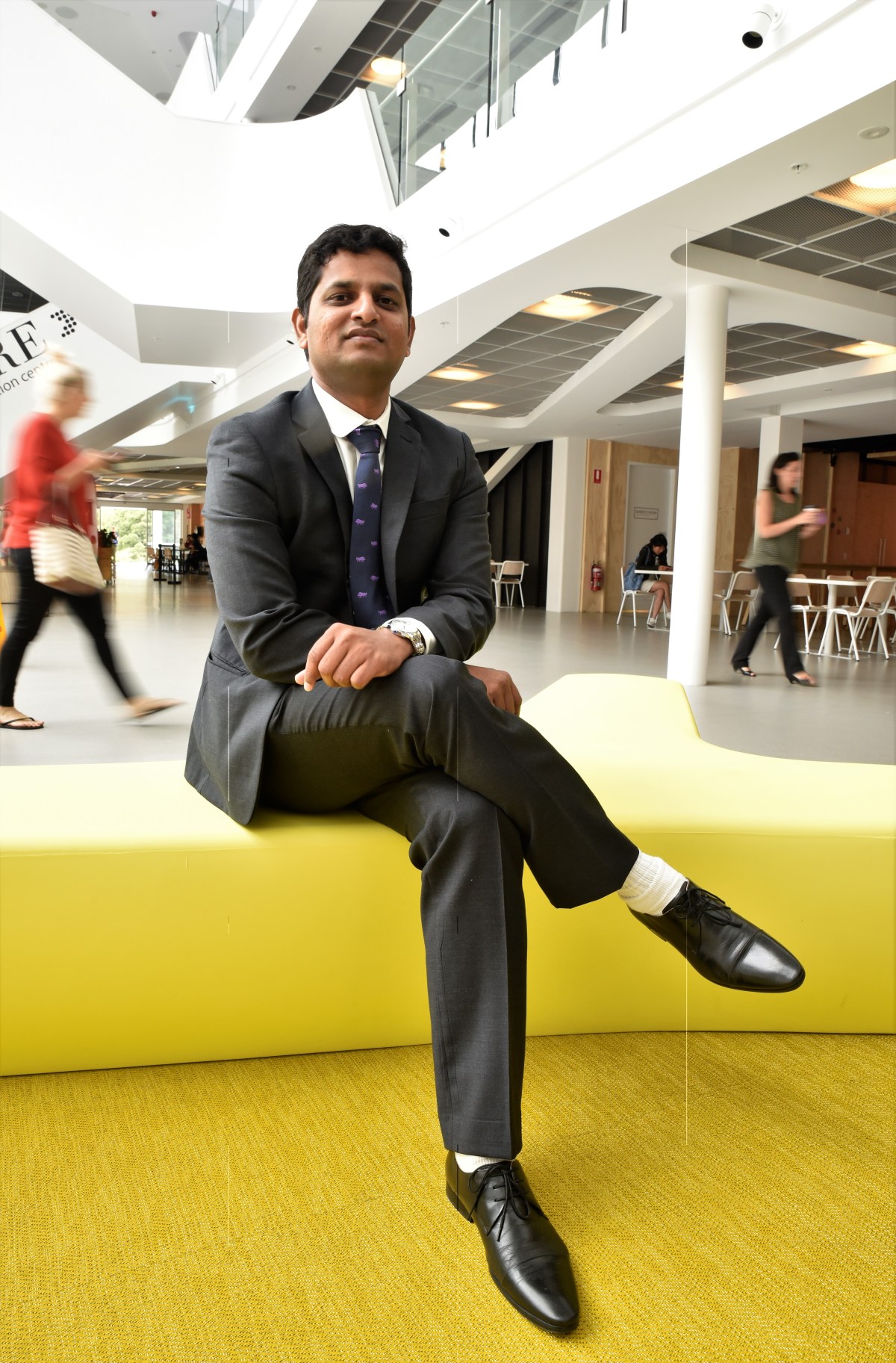
Diverse staff hold key to Australian hotel success
With cut-throat competition between online travel sites, high-quality staff are one of the few remaining ingredients that can make the difference between a successful hotel and an accommodation nightmare.

New research by Flinders University business academic Dr Ashok Manoharan has found that Australian hotels typically depend upon a multicultural workforce to keep them in operation – and the way they treat their staff is a key ingredient of hotel success.
Dr Ashok’s research, involving surveys of more than 100 hotels across Australia, has found that hotels that manage their culturally diverse workforces well tend to be the most successful.

Dr Ashok Manoharan from Flinders Business School.
“Hotels have updated technologies and tried to cut costs in all sorts of ways, but getting the best out of staff remains a challenge for many,” Dr Ashok said.
“Migrants are the biggest source of employees for hotels and hotels are dependent upon them, but there are specific diversity management practices for those staff and it really impacts on hotel success and employee turnover.
“There is a strong positive correlation between hotels which manage their culturally diverse staff effectively and lower levels of employee turnover as well as improved operational outcomes.
“The best way Australian hotels can differentiate effectively now is to value their employees – and in return their staff will create value by giving better services to guests.”
Dr Ashok spent the first years of his career working in hotels and has since built up an international reputation as an expert in hospitality management.
Dr Ashok said large 5-star hotels represented only about 5% of the accommodation sector in Australia. Intense competition was playing out in between medium-sized hotels with between 20-199 staff – the backbone of the Australian hotel industry.
“I come from a hospitality background and have worked closely with the industry for the past 15 years and it is critically important for medium-sized hotels in particular to get their diverse staff management strategies right so they can keep guests happy and balance sheets stable,” Dr Ashok said.
“If you want to work in aged care, you need to complete a Certificate 3 or 4 qualification, but if you want to work in a hotel, no-one asks you to complete a qualification at all. Any generic qualifications can complement the jobs in hotels.
Following research with hotel managers from across Australia, Dr Ashok has found that having staff from diverse backgrounds had many benefits – including the capability of staff to speak to foreign guests in their own language; migrant workers are perceived to have strong ethics and the quality of ideas in how the hotel was run improved as a result of a diversity of perspectives.
However, managers frequently experienced challenges with the English proficiency of staff from diverse backgrounds – making it difficult to provide direction or communicate with customers. There were also significant challenges if there were too many staff from a single cultural background – for example if the majority of staff wanted to take the same religious holiday.
Dr Ashok is preparing to share the research with Australian hotel industry groups and is also setting out to survey staff, to get their perspectives on opportunities to improve outcomes.
“The research shows that few hotels have effective staff management approaches to maximise the benefits and minimise the issues that arise from having diverse staff,” Dr Ashok said.
“Diversity management tends to be very ad hoc, so that if a manager who is highly successful at managing diverse staff leaves, positive practices may not be sustained.
“My research is showing that hotels can become different and successful purely on the basis of how they treat their diverse employees.”




